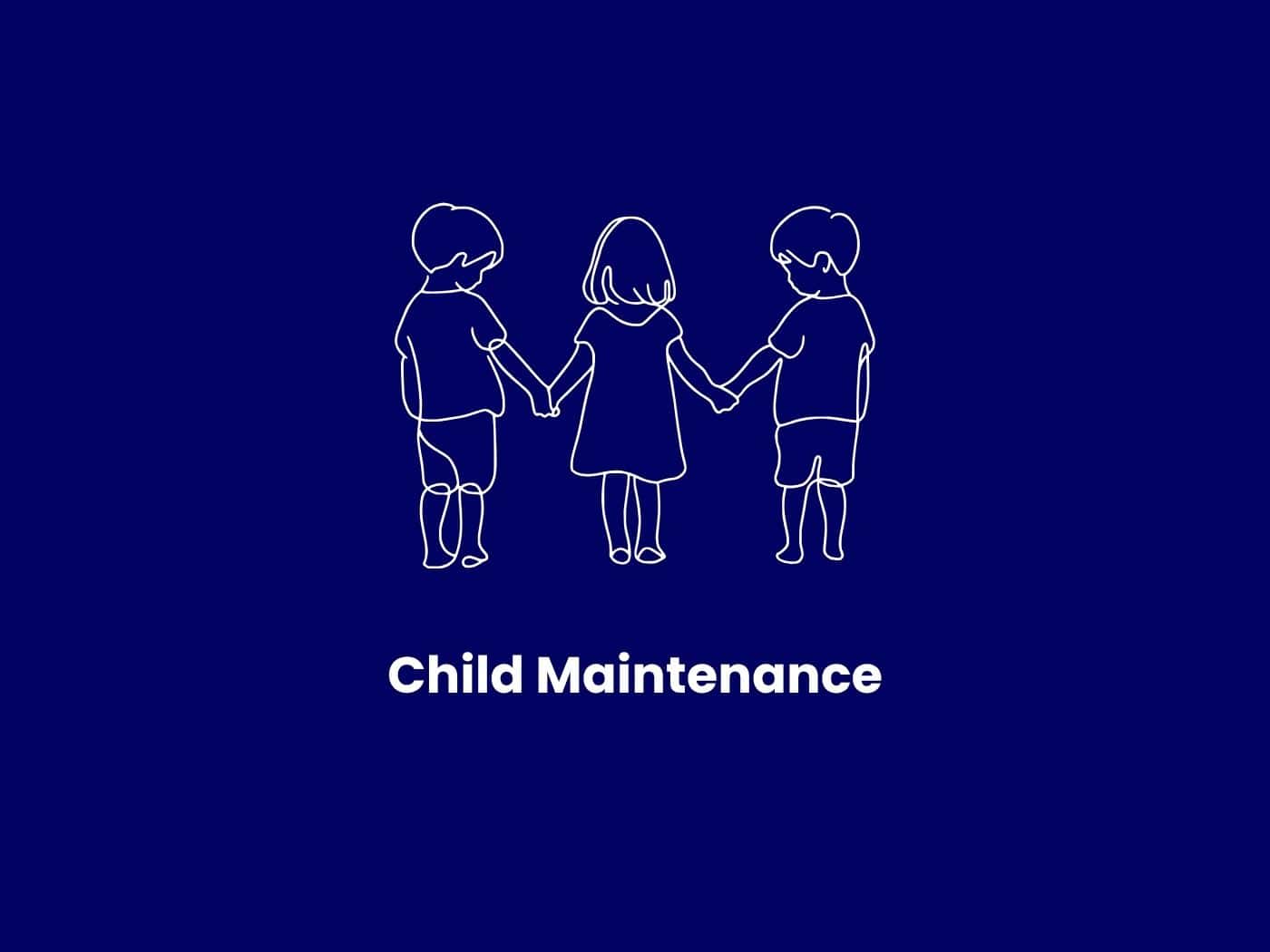
What is Child Maintenance?
Child maintenance is the financial support provided by the parent towards the living expenses of his or child. The living expenses include accommodation, clothing, food and education or any other expenses as may be reasonable having regard to the parents’ means and station in life.
Usually, the non-custodial parent (meaning, the parent who does not have care and control of the child), is ordered to pay child maintenance to the custodial parent (meaning, the parent granted with the care and control of the child. For those cases in which the parent

Under Singapore law, (see section 68 of the Women’s Charter 1961), by default both parents (not just the father) have legal duty to maintain or contribute towards the maintenance of their child until the child reaches 21 years old. However, it does not mean that the financial burden is equally borne by each parent. The apportionment is dependent on a list of relevant factors.
The primary aim of child maintenance is to ensure that the child’s financial needs are met so that, subject to parents’ financial abilities, the child may continue to enjoy a standard of living similar to what they were accustomed to during the marriage.
If there are minor children involved in a divorce case, the Court will issue an order of child maintenance upon divorce. This is to ensure that the minor child’s financial needs are protected by an order of maintenance.
What Do Maintenance Orders in Singapore Entail?
In Singapore, if there is no agreement by the parents on the child maintenance amount payable by the non-custodial parent upon divorce, the Family Court will determine the child maintenance amount payable after considering relevant factors on a case-by-case basis. There are no fixed formula or statutory schedules to follow.
The Maintenance Order may provide for the maintenance amount to be paid in various ways, including:
- Monthly Basis: Regular periodic monthly payments that provide steady funds for day-to-day living expenses such as food, clothing, and school fees.
- Yearly Basis: Specific payments for certain types of living expenses that are applicable on a yearly basis such as end of year school textbooks and school uniforms.
- Ad Hoc or One-Off Expenses: Payments for specific needs like computer laptop for the child, big ticket expenses such as hospital bills.
- Lump Sum Payment: A one-time payment. However, it is not very common for the Court to order just a one-time lumpsum payment for child maintenance because the child’s financial needs may change in future, especially for young children.
- Direct Payments to Third-Party Service Providers: Payments made directly to service providers for specific expenses such as enrichment class agency and childcare centre.
Eligibility for Child Maintenance
The Court considers several factors before making a decision, including (but not limited to):
| Factor | Details |
| Income, Earning Capacity, and Financial Affairs | Current and foreseeable future financial situation of each parent |
| Financial Needs, Obligations, and Responsibilities | Current and foreseeable future financial needs and responsibilities of each parent |
| Standard of Living | The lifestyle enjoyed by the child before the separation or divorce |
| Age and Needs of the Child | The child’s age and specific needs, such as education and healthcare |
| Physical and Mental Abilities | The physical and mental health of each parent and the child |
| Contributions to the Child’s Welfare | Contributions made by each parent to the welfare and upbringing of the child |
| Loss of Benefits | The value of any benefits the child or parent will lose due to the separation or divorce, such as healthcare coverage |
These factors underscore the Court’s commitment to issuing fair and balanced maintenance orders that address the unique circumstances of each case.
The Court carefully evaluates the above factors before deciding how each parent should share the financial responsibility for their children’s living expenses.
Frequently Asked Questions about Child Maintenance
How long must child maintenance be paid in Singapore?
The Court decides the duration, usually until the child reaches 21 years of age, or completes their tertiary education if applicable.
Are parents required to pay child maintenance even if they do not have custody?
Yes, the non-custodial parent is still required to pay child maintenance to support the child’s needs.
Can child maintenance payments be avoided in Singapore?
No, avoiding payment is illegal, and enforcement actions can be taken if a maintenance order is not followed.
What happens if a parent refuses to pay child maintenance?
If a parent refuses to pay, the Court can be applied for enforcement. The Court can take legal actions to ensure compliance with the maintenance order, including garnishing wages or seizing assets.
This guide aims to provide a clear understanding of child maintenance in Singapore, helping parents navigate the complexities of post-separation financial support to ensure their child’s well-being.
Who Can Apply for Child Maintenance?
The following individuals can apply for a Maintenance Order:
– The parent of minor child
– Guardian of the minor child
– The child themselves, if he or she is an adult
The custodial parent does not allow me to see my child for access. Can I withhold child maintenance payment?
No. The Court looks at maintenance payment and access as two separate and distinct issues. If you withhold child maintenance payment, the custodial parent has a right to apply for legal enforcement of maintenance arrears against you.
For breach of access order, you may separately apply to the Court to enforce your right of access against your ex-spouse. The Court may award you with make-up access to compensate for the lost time with your child and/or order mandatory counselling/mediation for the parent in breach of access order.
What can the court do to enforce a child maintenance order?
The court may make an order to enforce an existing maintenance order against the respondent who does not comply with the order. These may include any of the following:
– Sentencing the respondent to imprisonment.
– An Attachment of Earnings Order, which directs the respondent’s employer to deduct the portion of maintenance from the respondent’s salary and make direct payment to the applicant.
– An Enforcement Order for Attachment of a Debt, which orders a non-party who owes the respondent money to pay the money owed to the applicant instead of the respondent.
– An order for the respondent to give a banker’s guarantee against future defaults.
– An order for the respondent to undergo financial counselling.
– An order for the respondent to perform community service.
– A show-payment order, which requires the respondent to prove in such manner and on such date or dates as the court may specify, any maintenance arrears or payable maintenance to be paid to the applicant.
I was retrenched from my previous job and my current job is only half of my previous pay. Can I ask the Court to reduce the child maintenance amount?
Yes. You can engage a family lawyer to apply to the Court to vary by reducing the existing child maintenance order. You will need to prepare supporting documents to prove your claim.
After receiving your variation application, the court may make an order to vary an existing order made by the Family Courts.
Some applications are made by custodial parents to increase child maintenance due to increased child expenses.
The type of variation depends on what the applicant is asking for. Some examples of variation include:
– Increasing the fixed monthly payments.
– Decreasing the fixed monthly payments.
– Inserting or removing clauses to the maintenance order.
– Suspending maintenance for a period of time

Ng Pui Khim is a senior lawyer with over 20 years of private practice experience focusing on divorces (family and matrimonial law), real estate (conveyancing practice), wills and succession law.
All rights reserved. Any information of a legal nature in this website is given in good faith and has been derived from resources believed to be reliable and accurate. The author of the information contained herein this website does not give any warranty or accept any responsibility arising in any way, including by reason of negligence for any errors or omissions herein. Readers should seek independent legal advice
